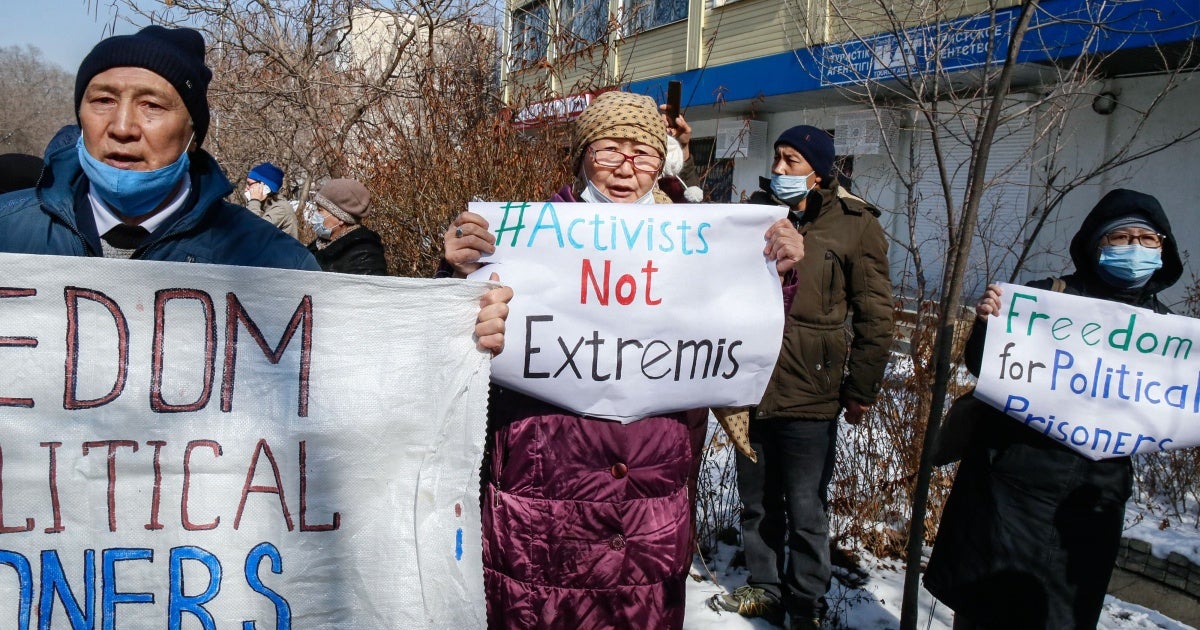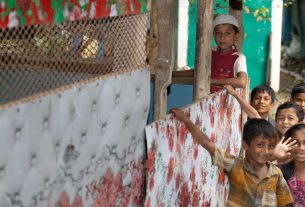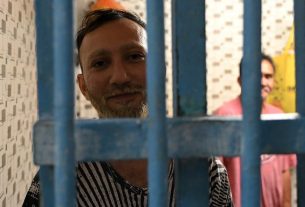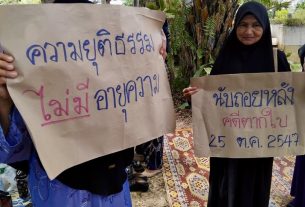- Authorities in Kazakhstan are misusing extremism and terrorism legislation to target peaceful government critics and others, in violation of international human rights law.
- People convicted on overbroad extremism and terrorism charges – even those who have not participated in, instigated, or financed violence – are automatically subject to wide-ranging financial restrictions that interfere with their economic and social rights.
- The Kazakhstan government should amend extremism and terrorism-related legislation to comply with international human rights standards and remove people convicted of nonviolent crimes from the list.
(Berlin) – Peaceful opposition activists and others in Kazakhstan face unjustified state-imposed financial restrictions as a consequence of being prosecuted on overbroad extremist or terrorism-related criminal charges, Human Rights Watch said in a report released today. These financial restrictions can violate internationally protected economic, social, and cultural rights.
The 29-page report, “Politically Targeted, Economically Isolated: How Kazakhstan’s Financing Terrorism List Compounds Human Rights Harms,” documents that people on Kazakhstan’s Financing Terrorism List face financial restrictions that cause them significant hardship. The restrictions lead to violations of rights guaranteed by the International Covenant on Economic, Social, and Cultural Rights (ICESCR) to which Kazakhstan is a state party, including the rights to an adequate standard of living and access to work and social security benefits. This is particularly egregious when the prosecutions are for alleged nonviolent “extremist” or “terrorist” crimes, that should not be considered crimes in the first place.
“If you participate in peaceful anti-government protests in Kazakhstan, not only can the government prosecute you as an ‘extremist,’ but it can cut you off financially,” said Mihra Rittmann, senior Central Asia researcher at Human Rights Watch. “Kazakhstan should immediately end its pernicious use of extremism and terrorism laws against peaceful critics and others and remove anyone currently on the Financing Terrorism List who has been convicted of nonviolent crimes.”
Human Rights Watch interviewed 18 people, 15 of whom had been prosecuted on extremism- or terrorism-related charges and 3 whose adult children had been prosecuted on such charges. Human Rights Watch also interviewed two human rights lawyers and reviewed relevant court documents and media articles pertaining to several of the cases documented in this report.
Kazakhstan’s legislation does not distinguish between violent and nonviolent extremism and multiple articles in the criminal code relating to extremism and terrorism are vaguely worded and overbroad. Kazakhstan authorities have used these provisions to criminalize activities and speech that are protected under international human rights law.
Anyone prosecuted in Kazakhstan on criminal charges that authorities qualify as “extremist” or “terrorist” is automatically placed on the state’s “list of people and organizations associated with financing terrorism and extremism” regardless of whether the individual instigated, participated in, or funded violence. Under Kazakhstan’s 2009 money laundering law, people on the Financing Terrorism List are blocked from accessing their bank accounts and cannot use credit or debit cards. They are also banned from conducting certain financial transactions at notaries or post offices, for example.
A majority of people interviewed for the report were prosecuted for alleged “participation in a banned extremist organization,” an overbroad criminal charge that authorities have long used to harass and silences peaceful opposition activists.
Human Rights Watch found that state-imposed financial restrictions are unjustified and inappropriate when applied to people who have not engaged in, instigated, or financed violence. Not only do the authorities fail to uphold due process when subjecting people to financial restrictions, but people interviewed also reported significant barriers in getting jobs and interference with getting social security and other benefits. Together, these restrictions have led to people being unable to fully experience other economic and social rights guaranteed under international human rights law, including, but not limited to, the right to an adequate standard of living.
Being included on the Financing Terrorism List has serious consequences for the individual’s well-being and that of their family, and violates their right to be protected from arbitrary interference with their personal and family lives, Human Rights Watch said.
Abaibek Sultanov, a civic activist from a town outside Almaty who was prosecuted on extremism-related charges in 2021 and is currently subject to financial restrictions tied to his prosecution, described it to Human Rights Watch as being under an “economic blockade.”
Kazakhstan should exclude crimes qualified as “extremist” from automatic inclusion on the Financing Terrorism List, and immediately lift financial restrictions on anyone currently on the list who was convicted of nonviolent “extremist” or “terrorism” crimes.
The Kazakhstan authorities should revise the criminal code’s provisions on extremism and terrorism so that they have sufficient precision to guarantee legal certainty. Kazakhstan also should not criminalize legitimate exercise of freedoms of speech, expression, and association, or violate other rights protected by international law.
“It is bad enough that people in Kazakhstan can be wrongfully prosecuted on “extremism” or “terrorism”-related charges simply for exercising their rights to free speech, religion, or peaceful assembly; they are forced to endure unjustified financial restrictions as well,” Rittmann said. “The government urgently needs to amend extremism and terrorism-related legislation to ensure it complies with international human rights standards.”



